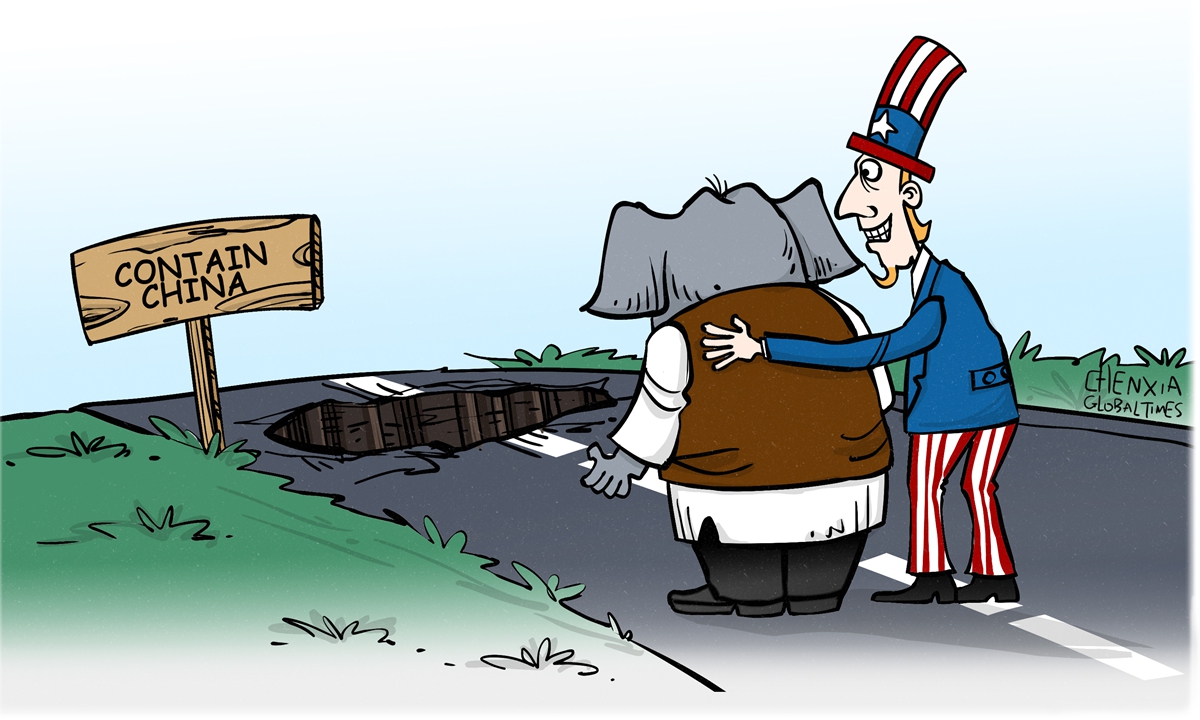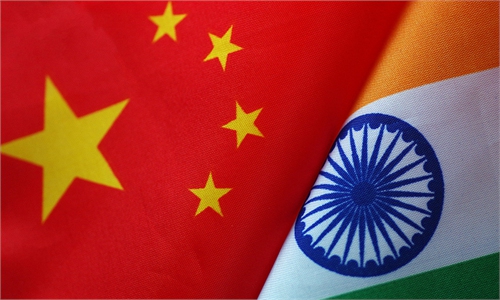
Illustration: Chen Xia/Global Times
On March 20, local time, a spokesperson for the US State Department claimed that the US government recognizes the so-called "Arunachal Pradesh" (China's Zangnan area) as Indian territory and "strongly opposes any unilateral attempts to advance territorial claims by incursions or encroachments, military or civilian, across the Line of Actual Control." This statement is extremely sinister and malicious, openly intervening in the China-India border issue, which is totally irrelevant to the US, and explicitly supporting India's claims. On the surface, it seems to be helping India, but in reality, it is handing India a tempting poison. Will India take it? We hope India will remain calm and sober.
Possibly due to the approaching elections, India has recently started to frequently exploit the China-India border issue. Indian Prime Minister Narendra Modi attended the inauguration ceremony of projects such as the Sela Tunnel in the so-called "Arunachal Pradesh" on March 9. The Indian military has increased its deployment of forces in border areas, and the Indian Ministry of External Affairs has repeatedly made cliches over the China-India border issue. It is worth noting that Indian Foreign Minister Subrahmanyam Jaishankar once again criticized India's first prime minister Jawaharlal Nehru's foreign policy stance toward China on March 20, questioning the concept of "Chindia," which clearly implies something.
From the perspective of political utilitarianism, the ruling Bharatiya Janata Party (BJP) in India wants to attract votes by taking a tough stance on the China-India border issue. Some analysis also suggests that "the BJP has needed to tear down some of Nehru's myths in order to build its own." However, regardless of their true intentions, these actions objectively treat China-India relations as a sacrificial lamb, complicating the China-India border issue.
Just as New Delhi was slightly "intoxicated" with the China-India border issue, Washington opportunistically brought over a toxic drink. The cost of producing this poison in Washington is extremely low, or virtually costless, consisting of nothing more than a few statements like those from the US State Department this time, but it's highly toxic. It will further fuel New Delhi's stubbornness and even encourage adventurism in border negotiations. The 1962 China-India border war left a profound lesson in this regard.
As is well known, the Chinese government has never recognized and strongly opposes the so-called "Arunachal Pradesh" illegally established by India, which is also the core of the dispute in the eastern section of the China-India border. In the absence of a resolution to the China-India border issue, India has repeatedly taken unilateral actions to escalate tensions in the border areas. We want to remind some people in India that using border and security issues as a "magic weapon" to gain votes and popularity is like dancing on the edge of a knife, which could lead to serious consequences, causing immeasurable losses to their own country and the entire region's peace, stability, and development.
Currently, the overall situation on the China-India border is stable, and both sides are maintaining effective communication through diplomatic and military channels to address each other's concerns about the border situation. A total of 21 rounds of talks at the corps commander level have been held between China and India, achieving some progress. At this critical juncture, neither China nor India wants to see the border situation deteriorate or conflict occur. Peace and tranquility in the border areas are the common aspiration of the people of both China and India, and are in line with the fundamental interests of both countries. This requires both sides to work together to maintain peace and stability in the border areas. If India, under the instigation and manipulation of outsiders, thinks it can gain some advantage through certain means, India will be the one to suffer the most.
China is full of goodwill toward India and sincerely wants to live in harmony with this neighbor that cannot be moved. The border issue between China and India has not been resolved, but the facts of the exchanges between the two countries over the past few decades have proven that as long as both sides remain calm and restrained, the border issue will not hinder mutual cooperation between China and India, as well as strategic cooperation and communication between the two representatives of the "Global South" on the international stage. The international situation is complex and ever-changing, and the common interests of China and India far outweigh their differences. China has repeatedly emphasized that the improvement and development of China-India relations are in the common interests of both countries and their peoples, and also contribute to peace, stability, and development in the world and the region. Both sides should consider the overall situation of bilateral relations, properly handle the border issue, and jointly maintain peace and tranquility in the border areas. At a time when the US is offering this toxic drink, New Delhi should consider China's words.


